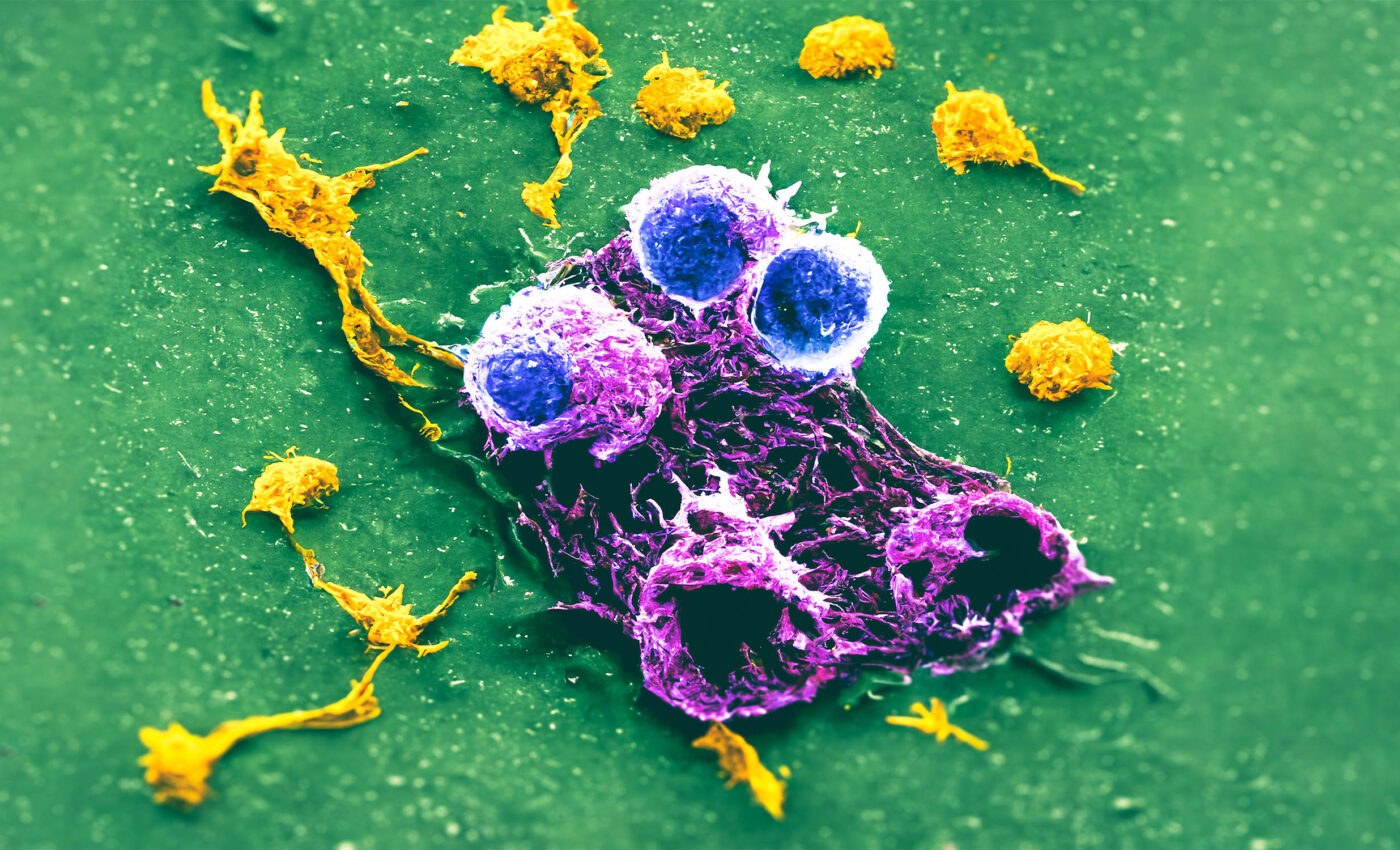
Plant virus that attacks black-eyed peas also kills cancer tumors
In the field of cancer research, unexpected heroes sometimes emerge from the most surprising sources. Who would have thought that a virus related to the humble black-eyed pea plant could hold the key to a potential breakthrough in cancer treatment?
Yet, that’s exactly what a remarkable study from the University of California San Diego (UC San Diego) suggests.
Treating metastatic cancer with a plant virus
Metastatic cancer, also known as stage 4 cancer, is when cancer cells spread from the primary tumor to other parts of the body. This process is called metastasis. Metastatic cancer can affect various organs, including the liver, lungs, bones, and brain.
The spread happens when cancer cells break away from the original tumor, travel through the bloodstream or lymphatic system, and form new tumors in other organs or tissues. These new tumors are made of the same type of cancer cells as the primary tumor.
For example, if breast cancer spreads to the lungs, the cancer cells in the lungs are still breast cancer cells, not lung cancer cells.
Metastatic cancer is more challenging to treat than cancer that remains in one location. Treatment usually aims to slow the growth of the cancer, manage symptoms, and improve quality of life.
Common treatments include chemotherapy, targeted therapy, immunotherapy, radiation therapy, and sometimes surgery. Each case is unique, and treatment plans are tailored to the individual’s specific situation.
Despite the advanced stage of metastatic cancer, ongoing research and new treatments are continually improving outcomes and offering hope for patients. Early detection and advancements in medical science play crucial roles in managing this complex condition.
Plant virus in cancer treatment
Researchers at UC San Diego have harnessed the power of the cowpea mosaic virus, a virus that typically infects black-eyed pea plants, to develop an experimental cancer treatment.
When transformed into nanoparticles, the virus has shown remarkable promise in protecting against a broad range of metastatic cancers in mice.
The ability of this plant virus-based treatment to combat metastasis across various cancer types, including colon, ovarian, melanoma, and breast cancer, is a significant step forward.
“We are providing a systemic treatment to wake up the body’s immune system to eliminate the disease before metastases even form and settle,” said Nicole Steinmetz, a professor of nanoengineering at UC San Diego and a leading researcher in this study.
How does it work?
The beauty of this treatment lies in its simplicity and natural origins. Scientists grow black-eyed pea plants in the lab and infect them with the cowpea mosaic virus.
The plants then produce millions of copies of the virus, which are harvested as ball-shaped nanoparticles. These nanoparticles, with no further modification, are ready for use in experiments.
These nanoparticles don’t directly attack cancer cells. Instead, they act as an immune system alarm. Even though the virus is harmless to mammals, the body’s immune cells recognize it as a foreign invader.
This triggers a robust immune response, not only against any existing tumors but also against future ones, effectively preventing cancer from spreading and recurring.
The immune response is crucial because it harnesses the body’s natural defense mechanisms to fight cancer. By stimulating the immune system, the treatment helps the body identify and destroy cancer cells more effectively.
This approach targets both the primary tumor and any potential metastases, offering a comprehensive strategy to combat cancer.
Plant virus cancer treatment shows promise in mice
The effectiveness of this plant virus treatment has been demonstrated in mouse models.
Mice injected with the cowpea mosaic virus nanoparticles and then exposed to metastatic tumors showed significantly improved survival rates and reduced tumor growth compared to untreated mice.
“Here, we do not treat established tumors or metastatic disease — we prevent them from forming,” said Steinmetz. This preventive approach is a game-changer. It means potentially stopping cancer in its tracks before it becomes a life-threatening problem.
Even more exciting is the treatment’s effectiveness after surgery. In mice that had tumors surgically removed, the nanoparticles helped boost the immune system, preventing any remaining cancer cells from spreading and causing a recurrence.
Future of plant-based virus cancer therapy
The researchers are enthusiastic about the potential of this plant virus treatment. They are now gearing up for clinical trials, with the goal of eventually testing this therapy in humans. While there’s still a long road ahead, the initial results are highly promising.
“Even if you perform surgery to remove the tumors, no surgery is perfect and there is outgrowth of metastasis if no additional treatment is provided,” explained Steinmetz. “Here, we use our plant virus nanoparticles after surgery to boost the immune system to reject any residual disease and prevent circulating tumor cells from metastatic seeding. We found that it works really, really well!”
This research also opens the door to exploring other plant-based therapies for cancer. It highlights the vast potential of nature to provide solutions for some of our most pressing medical challenges.
New hope for patients
The possibility of a plant virus-based cancer treatment is an exciting development for cancer patients and their families. While more research is needed, the early results suggest that this innovative approach could offer a safer and more effective way to prevent and treat metastatic cancer.
The cowpea mosaic virus, once just a threat to black-eyed pea plants, may soon become a powerful ally in the fight against cancer.
The study is published in the journal Advanced Science.
—–
Like what you read? Subscribe to our newsletter for engaging articles, exclusive content, and the latest updates.
Check us out on EarthSnap, a free app brought to you by Eric Ralls and Earth.com.
—–













